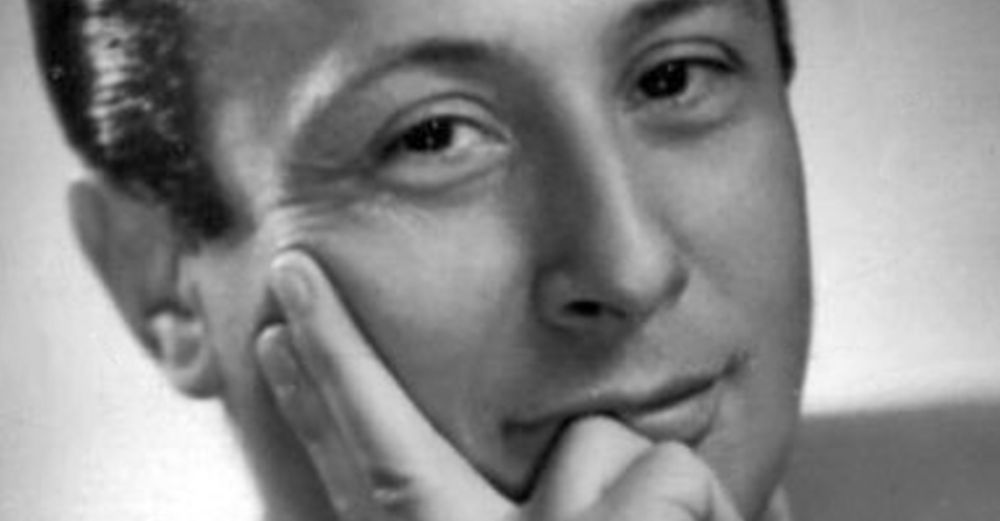- News
- Events
- Oneg Shabbat
- Collections
- Research
- Exhibitions
- Education
- Publishing Department
- Genealogy
- About the Institute
- Bookstore


Władysław Szpilman (alias Al Legro), a pianist, classical composer, chamber musician, was born on 5th December, 1911 in Sosnowiec to a family with musical traditions. He studied the piano at the Fryderyk Chopin University of Music, under guidance of Aleksander Michałowski and Józef Śmidowicz, and later at the University of Music and Performing Arts in Vienna.
In 1931, having received a scholarship, he went to Berlin and completed studies at the College of Music under guidance of Artur Schnabl (piano) and Franz Schreker (composition).
While performing in Berlin, he proved himself to be an outstanding pianist. It was there that he wrote his first compositions, such as a suite for piano called Życie maszyn [ Life of machines] and a few symphonic works.
When Hitler was elected in 1933, Szpilman left Berlin and came back to Warsaw. He began giving concerts there, often performing with a recognised violinist Bronislav Gimpel.
In 1935 he began working for Polish Radio as a pianist. He worked there until the outbreak of the Second World War. He did not give up concerts and as a result performed with eminent, world-renowned violinists including Bronisław Gimpel, Ida Haendel, Henryk Szeryng, Roman Totenberg.
As a composer, Szpilman initially wanted to devote his career to classical music; he is the author of many symphonic pieces, which have been included in the programs of philharmonics in Berlin, Warsaw, Łódź (for example, Sceny Baletowe, Concertino, Litle Overture for Symphony Orchestra, Waltz in the Olden Style). After the war, he composed music for the opening credits of the Polish Film Chronicle (since 1947).
However, popular music nad soundtracks predominate in his works. He composed music to such films as Wrzos (1937), Dr Murek (1939), Zadzwońcie do mojej żony (1957), and to radio dramas and musical comedies, such as Ciotka Karola, Mąż Fołtasiówny, but above all he is famous as the author of more than five hundred (his son Andrzej believes that there are about 1000) songs, among which, many became hits performed by most popular singers. Such songs as, Nie wierzę piosence, Deszcz, Tych lat nie odda nikt, Cicha noc, Nie ma szczęścia bez miłości, Czerwony autobus, Pójdę na Stare Miasto, Jutro będzie dobry dzień and many more, including 50 children songs are all signs of Szpilman’s large output. It is also worth mentioning that the authors of the lyrics to Szpilman’s songs include Kazimierz Winkler, Edward Fiszer, Emanuel Szlechter, Konstanty Ildefons Gałczyński, Jan Brzechwa, Tadeusz Kubiak and others.
After the outbreak of the war, in September 1939, Szpilman still worked for Polish Radio. On 23rd September, he was performing there pieces by Chopin. The recital was interrupted by power outage caused by German air raid on Warsaw’s power station. After the war, Polish Radio resumed its activity with Szpilman’s recital consisting of the same program which was interrupted by the raid in September 1939.
Szpilman his family found themselves in the Warsaw Ghetto. He played in cafes, also as a accompanist. He composed there also a few songs and piece of work called Casanova for one voice and two pianos, to the text of Władysław Szlengel.
When the deportation of Jews from the Warsaw Ghetto to the Treblinka extermination camp began, the Szpilmans also became the Germans’ victims. Władysław managed to escape deportation. He stayed in the ghetto, where from time to time he was employed as a labourer. Before the outbreak of the Warsaw Ghetto Uprising, he had managed to get through to the „Aryan side”, where, thanks to helf of a few friends, among others, Andrzej Bogucki, his wife Janina, Czesław Lewicki, and his wife Helena as well as a few famous composers, he got by till the outbreak of the Warsaw Uprising. During the uprising and after its suppression, further help received from his friends was no longer possible. Szpilman had to relay on himself. He barely managed to find a hiding place in a half-burnt building, where he was forced to vegetate in cold and hunger. Completely exhausted, close to suicide, he was accidentally discovered by a German officer, Wehrmacht’s captain, Wilm Hosenfeld. Not believing Szpilman’s explanations that he was a pianist, Hosenfeld took him to a room with a piano and told him to play something. Thanks to help of Hosenfeld, who regularly brought Szpilman food and warm clothing, Szpilman lived to see the end of the war. In 1946, a book called Śmierć miasta [The Death of a City] was published. It is co-written by Szpilman and Jerzy Waldorf and describes the dramatic life story of the pianist. After years, the publication, now including previously censored and extracted parts, was reprinted (Władysław Szpilman, Pianista, Wydawnictwo Znak, 2000). It was also published abroad and Polanski’s film bearing the same title was based on it.
After the war, Szpilman resumed his activities. He worked for Polish Radio again, and for some time he was even director of the Music Department there. He gave concerts, as a pianist and chamber musician; with Bronislav Gimpel, he founded an outstanding „Kwintet Warszawski”. He also continued composing songs, and was the originator and organizer of the first edition of the International Song Contest in Sopot (1961).
He died on 6th July, 2000 in Warsaw.